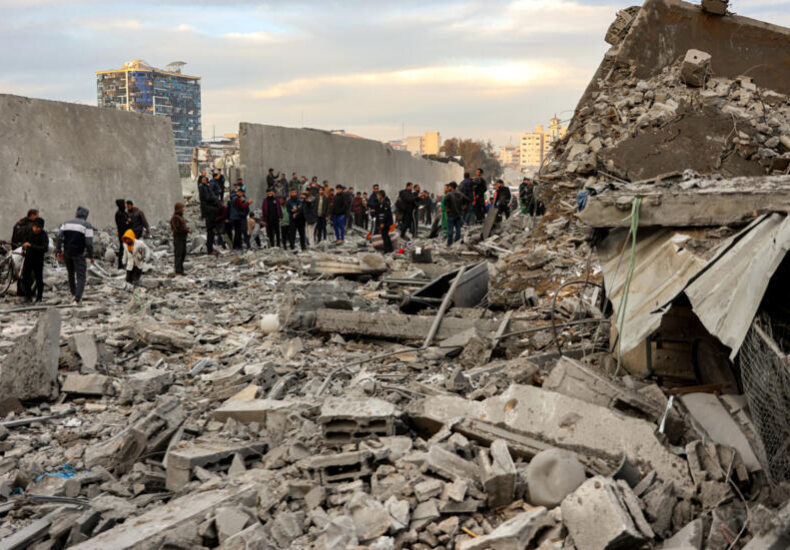
Israel: Hamas Knows Hostages’ Locations in Gaza
Israel Asserts Hamas Knows the Exact Location of Hostages in Gaza
In a chilling revelation, Israeli officials have claimed that Hamas knows the exact locations of the hostages it is holding in Gaza. This assertion has added a new layer of complexity to the ongoing conflict, as Israel intensifies its military operations aimed at rescuing civilians and neutralizing Hamas strongholds.
The statements have sparked intense debate and raised difficult questions about the fate of the hostages. The precise whereabouts of these individuals have remained unclear for weeks, as both sides in the conflict accuse one another of obstruction and misrepresentation.
A Dire Situation for the Hostages
Since Hamas’ initial attacks, numerous hostages—both Israeli citizens and foreigners—have been captured and held in Gaza. The Israel Defense Forces (IDF) have been working around the clock to identify the hostages’ locations, relying on intelligence sources and intercepted communications. However, recent claims suggest that Hamas has detailed knowledge of where the hostages are being kept, but has refused to provide any information to facilitate their release.
Israel has been vocal in its demands for the immediate release of hostages, citing humanitarian concerns and the urgent need for family reunification. This new revelation from Israeli officials adds a layer of frustration to the ongoing negotiations, as it suggests that Hamas is holding the hostages not just as pawns but as a strategic tool in the conflict.
Hamas’s Position and Denials
In response to Israel’s claims, Hamas has denied any such information and instead insists that the situation is far more complicated. According to Hamas, the hostages are spread across various locations in Gaza, and their release is contingent upon Israel halting its military operations and agreeing to ceasefire terms. Hamas has also stated that they are willing to negotiate the release of the hostages, but only if Israel meets certain conditions.
The continued denial from Hamas about knowing the precise locations of the hostages has added to the diplomatic stalemate. Meanwhile, the clock continues to tick, and each passing day increases the risk to the lives of those still in captivity.
The Role of Intelligence and Negotiation
For Israel, the task of locating and rescuing the hostages is intertwined with intelligence gathering and military operations. Israeli officials have indicated that their forces are making significant progress in determining the whereabouts of the hostages, but the situation remains fluid.
International diplomatic efforts have also ramped up, with multiple countries, including the United States and Egypt, stepping in to mediate. The involvement of neutral parties has been critical in attempting to broker a ceasefire that could facilitate the safe release of hostages.
However, Israel has emphasized that its primary objective is to protect its citizens and ensure that Hamas no longer poses a threat to national security. This makes negotiations particularly difficult, as Israel’s security concerns are tied directly to its willingness to negotiate with Hamas, a group that it considers a terrorist organization.
Hostage Rescue Efforts and Military Strategy
The Israeli military is engaged in a dual effort: conducting airstrikes against Hamas infrastructure while also carrying out targeted ground operations designed to rescue hostages. These operations have been met with heavy resistance, and casualties on both sides have been mounting. The challenges of navigating Gaza’s dense urban environment, combined with the risk to civilian lives, have made rescue efforts perilous.
Additionally, the presence of tunnels used by Hamas to move between various locations adds another layer of complexity to the rescue mission. These tunnels are believed to be used for hiding hostages, as well as for smuggling arms and fighters. As Israeli forces move closer to key Hamas locations, it is unclear whether these tunnels will play a decisive role in the eventual outcome.
International Response and Diplomatic Pressure
The international community has expressed deep concern over the plight of the hostages. Global leaders are calling for immediate ceasefire agreements and access to humanitarian aid. However, the political complexities of the situation—coupled with the longstanding Israeli-Palestinian conflict—have made it difficult for any lasting peace agreements to take shape.
Pressure is mounting on both Israel and Hamas to come to the table for negotiations that can lead to the safe release of all hostages. The public outcry surrounding the hostages has grown louder, with global protests and widespread media attention highlighting the urgency of the situation.
Conclusion: The Human Cost of Hostage Situations
As the situation in Gaza unfolds, the reality of the hostages’ circumstances grows more dire with each passing day. If Hamas indeed knows the exact locations of the hostages, it raises serious moral and ethical questions about their use as bargaining chips in this brutal conflict.
For Israel, the stakes have never been higher—rescuing its citizens and securing its borders while navigating the delicate complexities of international diplomacy. As the world watches closely, the hope is that a resolution can be found that prioritizes the safety and dignity of the hostages, bringing an end to their harrowing ordeal.